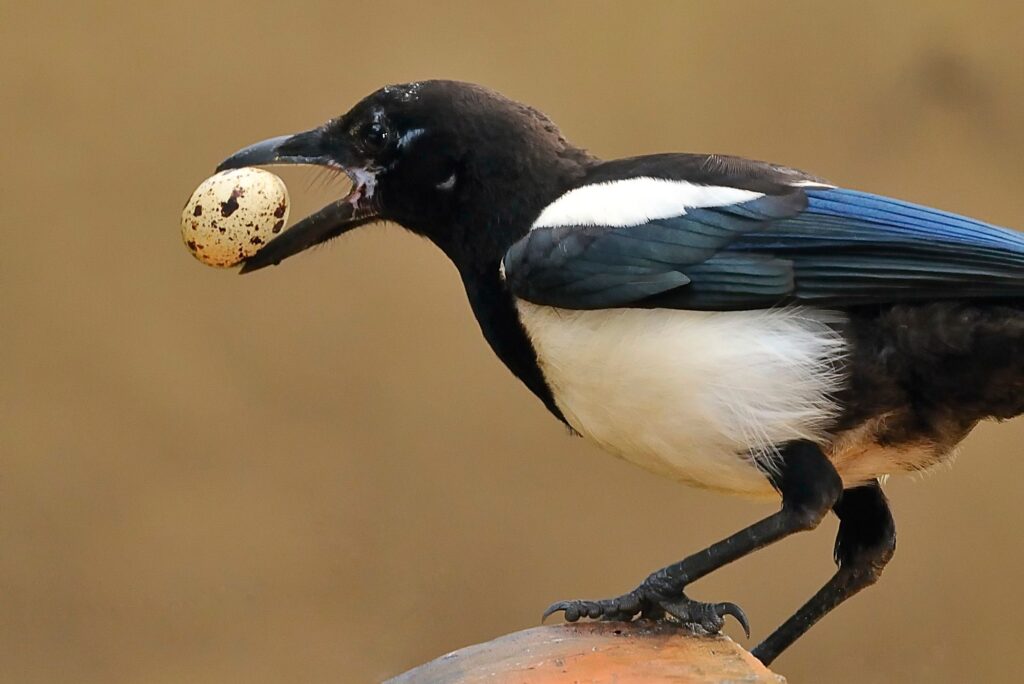
Image Source www.wildbirdscoop.com
The Fascinating World of Avian Diets: Can Birds Really Eat Eggs?
When it comes to avian diets, there are countless fascinating tidbits that can surprise even the most seasoned bird enthusiasts. One question that often arises is whether birds can consume eggs. It may seem counterintuitive, but the answer is a resounding yes! In this article, we will delve into the intriguing world of avian feeding habits and explore the reasons behind birds’ penchant for eggs.
Disclaimer: The information provided in this article is based on research and expert opinions; however, it is important to note that not all birds share the same dietary preferences. Individual bird species may have specific feeding habits, so it is crucial to consider the specific bird in question when addressing its dietary needs.
Exploring the Benefits: Why Do Birds Eat Eggs?
While it may seem odd that birds consume eggs, there are valid reasons behind this behavior. For some bird species, eggs are a vital source of nutrition, providing essential nutrients such as protein, calcium, and antioxidants. These nutrients are especially crucial during breeding seasons or when food resources become scarce.
Additionally, consuming eggs can be a strategic move for birds. Eggs are a readily available food source, often found in nests or abandoned by other animals. By consuming eggs, birds can take advantage of this convenient and nutrient-rich food supply, ensuring their survival and the survival of their offspring.
It’s important to mention that not all birds eat eggs. Each species has evolved to suit its unique environment and dietary requirements. While some birds have adapted to incorporate eggs into their diets, others rely on a variety of insects, fruits, nectar, or seeds. Understanding the specific feeding habits of each bird species is key to appreciating the diverse world of avian nutrition.
The Significance of Egg Consumption in Different Bird Species
As we’ve established, not all birds consume eggs. However, for those that do, the significance of this behavior can vary. Let’s take a closer look at some bird species and their relationship with eggs:
1. Raptors: The Egg-Eating Predators
Many raptor species, such as hawks, eagles, and falcons, include eggs in their diets. For these majestic birds of prey, consuming eggs can provide vital nourishment during times of food scarcity. Additionally, by hunting and eating the eggs of other bird species, raptors can help regulate populations and maintain ecological balance in their habitats.
2. Corvids: The Canny Egg Eaters
Corvids, including crows, ravens, and magpies, boast remarkable cognitive abilities. These intelligent birds have been observed stealing and consuming eggs from other bird nests. For corvids, eggs are a valuable food source that offers a rich supply of nutrients. Their ability to locate and extract eggs from nests demonstrates their resourcefulness and adaptability.
3. Gulls: Opportunistic Feeders
Gulls are often associated with seashores and coastlines, where they scavenge for food. These opportunistic feeders are known to consume a wide range of prey, including eggs. Gulls have agile and sharp beaks, which allow them to break open eggs and access the nutritious contents inside. Their ability to adapt to various habitats makes them successful egg predators.
Preventing Bird Damage: Strategies for Protecting Eggs
While birds’ consumption of eggs is a natural part of their behavior, certain situations may call for protecting eggs or minimizing potential damage. Here are some effective strategies to consider:
1. Nurturing a Bird-Friendly Environment
Creating a bird-friendly environment can help promote balanced interactions between birds and their surroundings. This includes planting native trees and shrubs that provide both shelter and food sources, such as berries or nectar. By offering a diverse range of food options, birds may be less inclined to seek out eggs as a primary food source.
2. Installing Protective Devices
Installing protective devices, such as wire cages or netting, can effectively deter birds from accessing nests and devouring eggs. These physical barriers should be carefully designed to allow for normal bird behavior without causing harm. It’s vital to research bird-friendly deterrents and consult with experts to ensure the safety and well-being of both birds and eggs.
3. Providing Artificial Nest Boxes
Offering artificial nest boxes can redirect birds’ attention away from natural nests. These nest boxes should be placed strategically to attract specific bird species, providing them with an alternative nesting option. By providing suitable nesting areas for birds, it may be possible to reduce their interest in other nests, including those containing eggs.
Conclusion
Although it may seem surprising at first, the fact that birds eat eggs is a remarkable testament to the complexity of avian diets. Understanding the reasons behind this behavior and the impact it has on different bird species is crucial for maintaining healthy populations and ecosystems.
Whether it’s the resourcefulness of corvids or the necessity of raptors, the world of avian feeding habits is a fascinating one. By adopting strategies to prevent potential damage and protect eggs when necessary, we can coexist harmoniously with our feathered friends while appreciating the wonders of their dietary preferences.